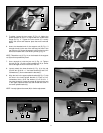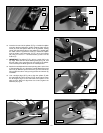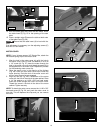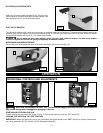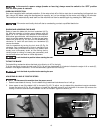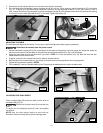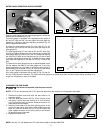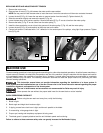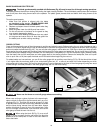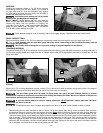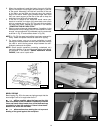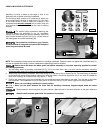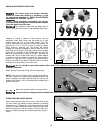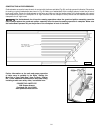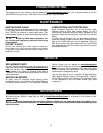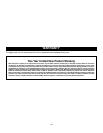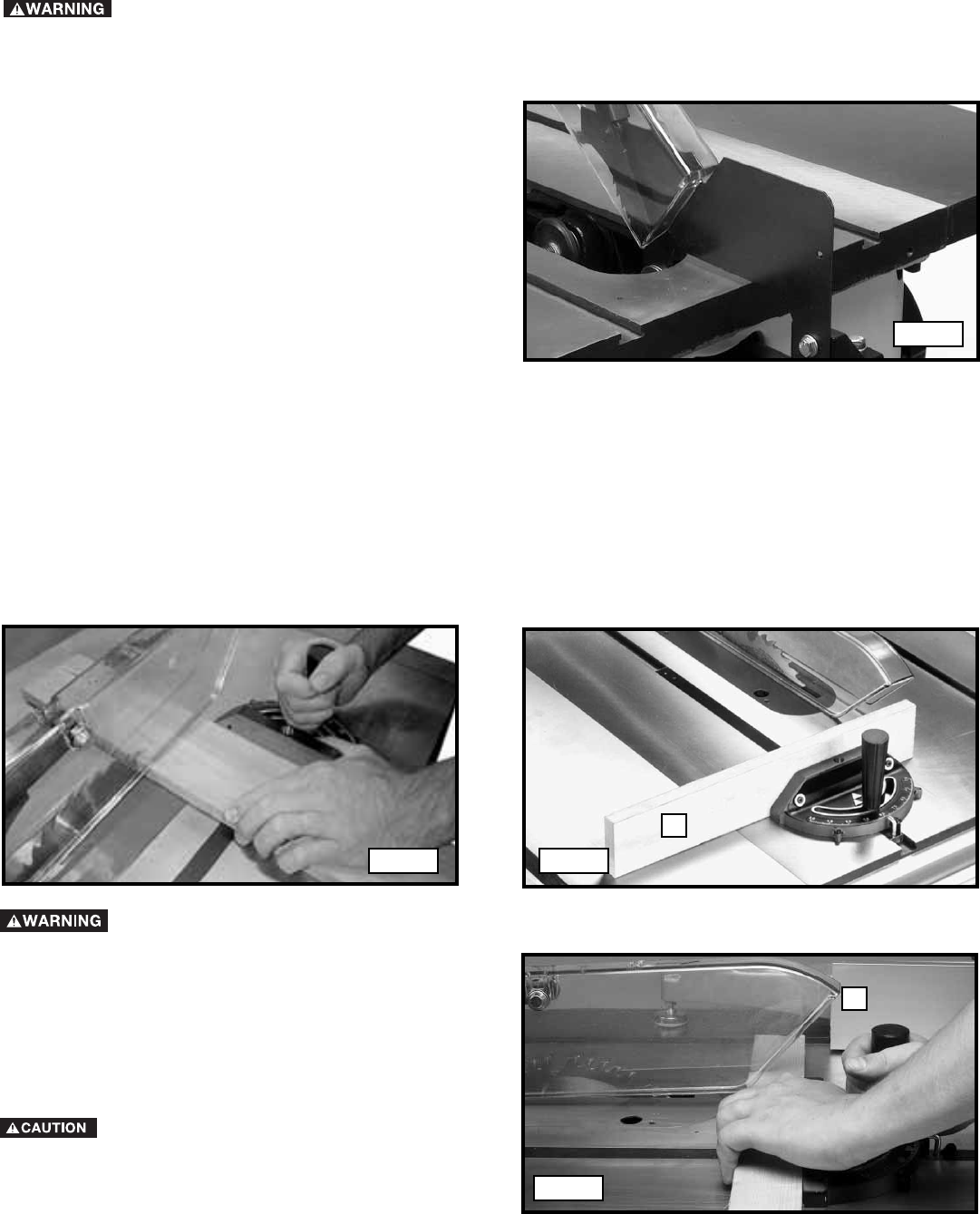
19
CROSS-CUTTING
Cross-cutting requires the use of the miter gauge to posi tion and guide the work. Before starting the cut, raise the blade so that it
is about 1/8” (3.2mm) higher than the top of the workpiece. Place the work against the miter gauge and advance both the gauge
and work toward the saw blade (Fig. 49 ). You can use the miter gauge in either table slot. Start the cut slowly and hold the work
firmly against the miter gauge and the table. Keep both hands on the miter gauge and workpiece. Do not touch the cut-off piece.
Feed the workpiece steadily through the blade until the workpiece is completely cut. Shift the workpiece slightly sideways away
from the blade, then pull the workpiece and miter guage back to the starting position. Remove the workpiece, then use a push
stick to push the cut-off piece past the blade and off the table before beginning the next cut.
For added safety and convenience, you can fit the miter gauge with an auxiliary wood-facing (C) Fig. 50 that should be at least
1 inch higher than the maximum depth of cut, and should extend out 12" or more to one side or the other depending on which
miter gauge slot is being used. This auxiliary wood-facing (C) can be fastened to the front of the miter gauge by using two wood
screws through the holes provided in the miter gauge body and into the wood-facing.
To use the guard properly:
1. Make sure the splitter is aligned with the blade
as described in the section “BLADE GUARD AND
SPLITTER ASSEMBLY AND ALIGNMENT.”
2. Replace or sharpen the anti-kickback pawls when they
become dull.
3. Keep the guard clean for visibility and free motion.
4. Do not use solvent or lubricants on the guard as they
may severely damage the plastic.
5. Use caution when feeding workpieces that may catch
on the guard and cause a bind or force the guard into
the blade (such as when cutting moulding).
Fig. 48
BLADE GUARD AND SPLITTER USE
The blade guard assembly provided with Delta saws (Fig. 48) must be used for all through-sawing operations.
The splitter prevents the kerf from closing and binding the blade, causing kickback. The anti-kickback pawls prevent the workpiece
and cut-off piece from being thrown back at the operator. The plastic guard prevents dust and debris from being thrown at the
operator.
Fig. 49
Fig. 50
C
When cross-cutting a number of pieces to the same length,
clamp a block of wood (B) to the fence and use it as a cut-
off gauge (Fig. 51). The block (B) must be at least 3/4" thick
to prevent the cut-off piece from binding between the blade
and the fence during removal from the saw table.
Always
position this block of wood in front of the saw blade. Once
the cut-off length is determined, lock the fence and use the
miter gauge to feed the work into the cut.
When using the block (B) Fig. 51 as a cut-off
gauge, it is very important that the rear end of the block be
positioned so the workpiece is clear of the block before it
enters the blade.
B
Fig. 51
Never use the fence as a cut-off gauge when cross-cutting.



